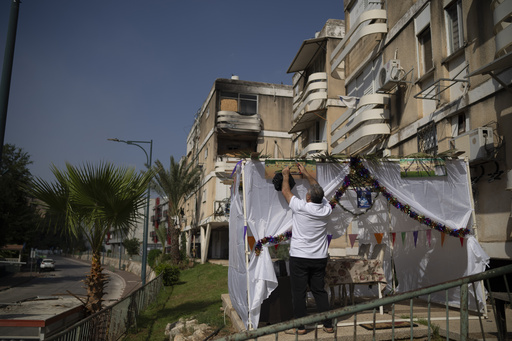
Israeli airstrikes targeted the southern suburbs of Beirut early Wednesday, marking the first assault in six days, according to reports from Lebanese state media. Israel maintains that its strikes aim to dismantle Hezbollah assets in the area, which is home to the militant group as well as various residential and commercial establishments. While the precise number of casualties resulting from the airstrikes had not yet been confirmed, the violence has raised significant concerns amidst the ongoing conflict.
The escalation of tensions follows a declaration from Sheikh Naim Kassem, the acting leader of Hezbollah, who stated that the group’s retaliatory attacks on Israel would intensify in response to a recent Israeli airstrike that resulted in the deaths of at least 22 individuals in an apartment building in northern Lebanon. While Israel claims the strike targeted Hezbollah interests, the United Nations has called for an impartial investigation into the incident.
The conflict has been escalating, with Israel increasing its operations against Hezbollah after a lengthy period of near-daily cross-border skirmishes. It has been over a year since Hamas militants breached Israel’s security barrier and invaded, leading to approximately 1,200 deaths, primarily among civilians, and the kidnapping of around 250 individuals. Israel’s military actions in Gaza have reportedly caused over 42,000 Palestinian fatalities, although local health authorities do not differentiate between combatants and civilians. The conflict has devastated significant portions of Gaza, displacing roughly 90% of its 2.3 million residents.
In the northern Gaza region, intense air and ground assaults have continued in Jabaliya for more than a week, leaving many families trapped in makeshift shelters as they seek safety from the violence. Concurrently, the Biden administration has issued a warning to Israel, emphasizing the need to expand humanitarian aid access to Gaza within the next 30 days, or face potential loss of American military aid.
In the latest developments, Israeli jets executed strikes against Beirut’s southern suburbs early Wednesday, conflicting reports suggest a lack of clarity surrounding casualty figures. This military action comes on the heels of assurances given to Lebanese caretaker Prime Minister Najib Mikati by U.S. officials that Israel would moderate its attacks on the capital. Israel has indicated that the strikes are aimed at Hezbollah operational capabilities in the area, claiming that a weapons warehouse beneath a residential building was among the targets hit.
In a notice shared on social media platform X, formerly Twitter, the Israeli military warned residents of an impending strike in the Haret Hreik neighborhood, where an eyewitness reported observing three airstrikes within a short timeframe. The conflict escalated significantly after Hezbollah began launching rockets into Israel on October 8, in solidarity with Hamas following their unexpected offensive in southern Israel, resulting in a marked shift from sporadic fighting to full-blown hostilities that have displaced roughly 1.2 million people in Lebanon.
Additionally, late Tuesday saw Israeli attacks in the southern town of Qana resulting in 10 fatalities and 15 injuries, as reported by Lebanon’s National News Agency.
A European Union official conveyed disappointment over the ongoing difficulties in negotiating a cease-fire in the region, asserting that the conflict between Israel and Hezbollah complicates efforts to implement necessary reforms in Lebanon and hinders access to international financial support. EU Commissioner for Crisis Management Janez Lenar?i? addressed these concerns during an interview, highlighting stalled reforms, including those related to electing a new president and establishing a functioning government.
Lenar?i? noted that the current violent climate significantly detracts from Lebanon’s ability to reorganize and secure available funding. He expressed dismay at the lack of response to calls for a cease-fire, emphasizing that the EU’s advocacy aims to allow Lebanon to stabilize and access the international community’s financial aid. The commissioner also voiced strong disapproval of civilian casualties caused by the ongoing conflict, describing such collateral damage as intolerable.
